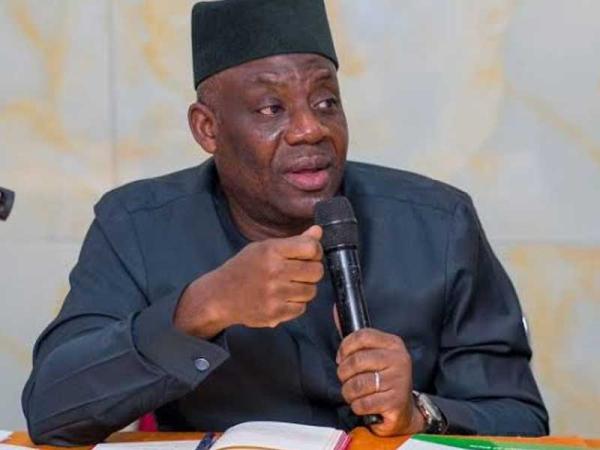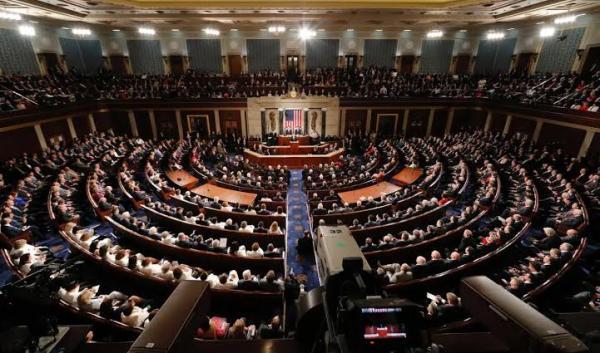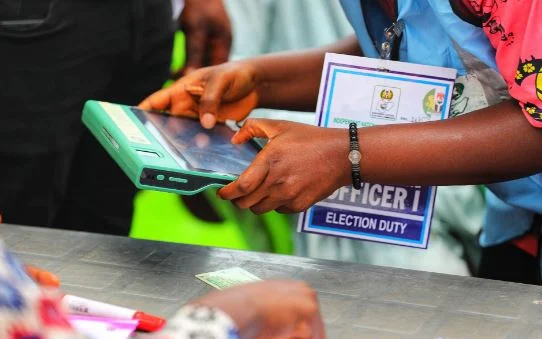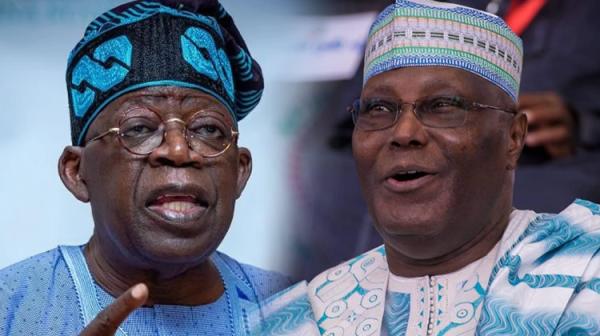
RISING from its first sitting in the new year, the Federal Executive Council (FEC) yesterday declared that the Federal Government was not muzzling the opposition. It exonerated the government of complicity in the arrest of the spokesman of the Peoples Democratic Party (PDP), Olisa Metuh, over the allegations of fraud and money laundering by the Economic and Financial Crimes Commission (EFCC).
However, the Lagos State chapter of the PDP has accused the Minister of Information and Culture, Lai Mohammed, of instigating Metuh’s persecution. The party said that its members would seek asylum if their persecution continued.
The FEC disclosed that it strategised on how to boost the nation’s internal revenue and plug loopholes through which government funds had been lost in the past. At the end of the meeting chaired by President Muhammadu Buhari, Minister of Finance, Mrs. Kemi Adeosun who was accompanied by Mohammed, told State House correspondents that the FEC resolved that Ministries, Departments and Agencies (MDAs) of the Federal Government, especially those that earn revenue for government but had hitherto spent without proper accountability and due process, must comply with the provisions of the Fiscal Responsibility Act.
The finance minister also confirmed that the Federal Government’s comprehensive audit of MDAs that remit their dollar revenues in naira would continue, but would not give details, preferring to wait for the outcome of the exercise.
During the first National Economic Council (NEC) in the life of the present administration, in June last year, it was reported that some strategic revenue-generating agencies were discovered to have been generating revenue in foreign currencies, especially the United States dollars but have been making remittances to the government coffers in the local currency, the naira. Notable among the culprits was lthe Nigerian Maritime Administration and Safety Agency (NIMASA). As a result, the NEC raised a special committee to investigate the matter and report back to it.
But Adeosun confirmed yesterday that apart from NIMASA, other government agencies, including some foreign embassies, had also been involved in the shady arrangement. She said the initiatives by FEC were meant to make the defaulting agencies to comply so they would not determine how to spend such revenues on their own without bringing them to the central treasury for budgeting or approval.
She disclosed that auditors would be sent to MDAs where expenditures were believed to be outrageous because “we are determined to ensure these leakages stop so that every naira counts and all the ministers agree that enough is enough.”
Her words: “The principal discussion in our meeting was the initiative by this administration to plug revenue leakages in our Ministries, Departments and Agencies (MDAs) that generate revenue, to remind ministers who supervise these revenue-generating boards of their responsibilities under the Fiscal ‘Responsibility Act.”
She noted that under the FRA, 80 per cent of such revenues are supposed to be credited to the Consolidated Revenue Fund (CRF), but regretted that, “we have discovered that many agencies have never credited anything and never generated any operating surplus including some whose salaries and overheads are paid by the Federal Government. In addition to that, they generate revenue which they spend without any form of control.
“So one of the initiatives and changes this administration is embarking upon is to bring all those agencies into line, to insist that they must submit a budget, that such a budget must be subject to approval and that they must operate within that budget so that the surplus that is meant to come to the Federal Government can be seen and used as appropriate. For clarification, let me explain that in non-oil economies, these are the revenue sources for government. It was because we had oil in the past that nobody ever really looked at MDAs like the Nigerian Communications Commission (NCC).”
She noted that a circular issued in December had asked MDAs to send in their budgets for vetting, adding: “What we discussed today was the responsibility of the ministers to ensure that whether those agencies have boards or not, their budgets must be prepared and the Federal Ministry of Finance would sit down with the supervising ministers and with the boards concerned where necessary to go through such budgets and make sure that they are reasonable and that costs are not inflated.
“And because some agencies have a track record of making sure that every naira they earn is spent, we will go in and audit them under Section 107 (8) of the Financial Regulations. Since the accountant-general has powers to inquire about how public money is spent, we will be sending in auditors to some agencies where we believe their costs are excessive and not in keeping with our expectations.
“We are going to make every naira count and to do that, we have to know how much is coming in and you control how it goes out. All the ministers concerned agreed that enough is enough and they even identified boards and agencies under them where they know that revenue is being diverted.
‘‘The key message is that change has now come to those agencies, boards and corporations which hitherto, had been operating without any control.
We are reining them in and making sure that, that money generated for all Nigerians is spent according to approval and any surplus then comes into CRF to be used to fund other areas of government.”
On the current position of the MDAs that remit revenues from dollars to naira, she said: “We have done a comprehensive audit of all the agencies that actually collect money in foreign currency and remit in Naira. The requirement is that such monies should go to the Central Bank of Nigeria (CBN) which should exchange the money into naira. We have stopped the practice in those agencies that had been involved in it, but we are now doing an audit to identify others apart from NIMASA, including our foreign missions which also collect funds in foreign currencies. We will ensure that all those revenues are now converted in accordance with the extant procedures and guidelines.”
The finance minister also told State House correspondents there was no substance to social media reports that Buhari had withdrawn the 2016 Appropriation Bill which he recently presented to the National Assembly on account of some embarrassing expose which suggested suspicious padding of budgetary votes for pecuniary interests.
“I’m not aware of any such withdrawal of the budget,” she said, adding, however, that the normal interactive passage of the budget would take place, whereby ministers and heads of agencies defend their budgetary allocations and during which whatever necessary amendments could be made to the budget since the National Assembly is not a rubber stamp.
While insisting that the 2016 Budget had not been withdrawn from the National Assembly, Adeosun and Mohammed declared that the Buhari administration would, however, not condone the padding of budgetary allocations via ministerial lobbying.
On allegations that the Buhari administration was muzzling the opposition and was behind Metuh’s arrest, Mohammed said: “This government is not teleguiding any of the security agencies in the effort to rid the country of corruption.”
He went further to charge the press to also investigate such allegations and others suspected of corruption by seeking evidence and making independent analysis.
“I think the first point to make is that this government is not micro-managing any of the anti-graft agencies. I know for a fact that they don’t contact the president or anybody before they do their job. I think the media also has to do more than they are doing right now, they should investigate these allegations and also make their independent judgment about it.
“Honestly, if the Economic and Financial Crimes Commission (EFCC) or Independent Corrupt Practices Commission (ICPC) says they are able to trace a certain amount of money to my account, I don’t want you to believe it, I want you to also ask for proof, do your investigation. I can assure you that in this government, no functionary micromanages or directs the EFCC or ICPC on who to arrest and who not to arrest.”
But in a statement yesterday, the Publicity Secretary of the Lagos chapter of the PDP, Taofik Gani said Metuh’s arrest was only being made convenient by the issue of money allegedly involved, stating that Mohammed, “who still sits as the spokesman of the All Progressives Congress (APC) had vowed to clamp down on the PDP publicity secretary’s office.”
The party said: “This trend is dangerous and is the last resort in the APC’s attempts to compromise some of us. We have also been receiving funny calls from unknown numbers of threats to our persons if we continue to expose the APC governors. Unless Olisa Metuh is approached within the rule of law and immediately granted administrative bail, pending any charge, we shall begin to seek asylum in safe countries. This is no doubt a totalitarian government and the world should be informed.”






















